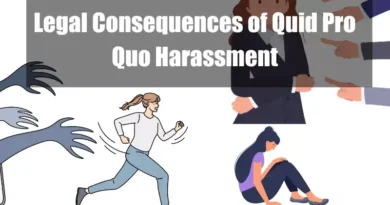Can Earmarks Become Quid Pro Quo Legally?
Takeaways
| Key Points |
|---|
| Earmarks can legally operate in ways that may appear similar to quid pro quo arrangements, but they are regulated to avoid unlawful exchanges. Earmarks direct government funds toward specific projects, often benefiting a legislator’s district. |
| When used to secure political support, earmarks risk crossing into improper influence, raising ethical questions. |
| The Supreme Court has ruled that while Congress holds the authority to allocate funds, using these allocations in a way that involves explicit quid pro quo—such as exchanging political support or campaign contributions for specific actions—could be deemed illegal if clear evidence of corruption or direct exchange of favors is established. |
| Legal regulations on earmarks aim to prevent direct financial gain for private individuals or groups, which could otherwise raise concerns about reciprocal political or financial support. Despite these limits, earmarks have attracted scrutiny in cases where indirect benefits appear. |
| By targeting public projects, Congress tries to maintain community support while avoiding legally problematic reciprocation. |
| In conclusion, although earmarks may resemble quid pro quo in some situations, they are structured and regulated to avoid direct, unlawful exchanges. |
Introduction
Earmarks, which are special provisions within federal spending bills that direct funding to specific local projects, are a common but controversial tool in U.S. Congress. While legally permitted, earmarks occasionally raise concerns due to the potential for misuse, especially if they take on the characteristics of quid pro quo transactions. This potential misuse brings up an important question: Can earmarks become quid pro quo exchanges, and if so, is that legal?
To explore this, it is essential to examine high-profile earmark cases, reforms aimed at mitigating abuses, and the ethical boundaries lawmakers must navigate to avoid quid pro quo corruption.
What Are Earmarks and Why Are They Controversial?
An earmark is a directive added to a federal spending bill that allocates money for a specific project, typically benefiting a particular constituency or area. Lawmakers often use earmarks to fund local infrastructure, education, research, or cultural projects that may not otherwise receive federal funding.
While legal, earmarks are often criticized as “pork-barrel” spending, especially when they appear wasteful, unnecessary, or tied to the lawmaker’s personal or political gain.
Understanding Quid Pro Quo in the Context of Earmarks
In legal terms, a quid pro quo transaction involves a mutual exchange of goods, services, or favors. In politics, quid pro quo becomes problematic when public officials use their position to exchange government resources for personal benefits. For earmarks, the ethical risk lies in the potential for backroom deals where funds are allocated not for public benefit but to secure political support, donations, or personal gains.
High-Profile Earmark Cases and Their Implications
1. The Bridge to Nowhere
The “Bridge to Nowhere” became one of the most infamous examples of an earmark used for a seemingly unnecessary project. Former Alaska Senator Ted Stevens pushed for $223 million in funding for a bridge connecting the Alaskan town of Ketchikan with Gravina Island, which had only about 50 residents.
The project was widely criticized as wasteful and unnecessary, with public backlash leading to its eventual removal from the National Appropriations Bill in 2005. Although Stevens claimed the bridge would boost local economic development, critics saw it as a prime example of “pork” spending that wasted taxpayer dollars without a justifiable public benefit.
However, while federal funding was later redirected, Alaska still received funds initially set aside for this project, and some preparatory work proceeded briefly under state auspices.
2. Rep. Duke Cunningham and Military Contracts
The Cunningham scandal was a major U.S. political scandal involving defense contractors bribing members of Congress, notably California Congressman Duke Cunningham, to secure federal contracts. Cunningham received over $2.3 million in bribes primarily from defense contractors Mitchell Wade (owner of MZM) and Brent R. Wilkes (owner of ADCS Inc.).
In exchange, he influenced Pentagon contracts in their favor, allowing Wade and Wilkes to secure millions in lucrative deals. Wade purchased Cunningham’s house at an inflated price, allowing Cunningham to live on Wade’s yacht in Washington, which raised suspicions leading to an FBI investigation.
With Cunningham’s support, Wilkes was able to secure millions of dollars in defense contracts, often through earmarks that bypassed standard military vetting procedures.
The scandal indirectly connected other members of Congress, including Rep. Virgil Goode and Rep. Katherine Harris, due to illegal campaign contributions orchestrated by Mitchell Wade. Wade reimbursed MZM employees for donations made to various campaigns, including those of Goode and Harris, without their knowledge of any wrongdoing.
This case demonstrates how earmarks can lead to corruption when used to benefit private contractors or individuals who offer kickbacks in return.
3. The Sparta Teapot Museum
Another earmark that generated significant attention was the $500,000 allocated for a teapot museum in Sparta, North Carolina, a town with a population of about 1,800. Secured by Representative Virginia Foxx and Senator Richard Burr, both from North Carolina, the earmark was defended as an economic development project. However, the public questioned the necessity of such a museum, and it ultimately closed in 2010.
This example highlights how earmarks can fund projects that, while legal, may appear frivolous to the broader public.
4. The Big Dig
The Big Dig in Boston remains one of the costliest and most ambitious infrastructure projects in U.S. history. Initially proposed to relieve traffic congestion by relocating an elevated highway into an underground tunnel, the project’s budget grew dramatically from an initial estimate of $2.6 billion in the early 1980s to over $14 billion by completion.
The cost escalation was due to factors including inflation, project scope expansions, delays, and costly design modifications, although some contractors faced fraud investigations for mismanagement.
Despite President Reagan’s veto over budgetary concerns, Congress ultimately approved federal funding in 1987, following strong advocacy from Massachusetts lawmakers. Over its 14-year construction, the Big Dig achieved significant improvements by reducing downtown traffic and reconnecting previously divided neighborhoods.
However, the project’s budget overruns and logistical challenges have fueled debates on the financial efficiency of earmark-funded infrastructure and the necessity of thorough cost control and oversight.
While traffic and urban cohesion improvements are widely acknowledged, critics argue that these benefits came at a financial cost that limited the project’s overall cost-effectiveness.
5. The Turtle Tunnel
Earmarks don’t always involve large sums; some make headlines for their unusual or seemingly unnecessary nature. One such example is the $3.4 million earmarked for constructing a “turtle tunnel” in Florida under the American Recovery and Reinvestment Act of 2009.
The tunnel was designed to protect turtles and other wildlife by allowing them to safely cross beneath Florida’s Highway 27, an area with heavy traffic that posed dangers to both animals and drivers. While the project received around $3.4 million in funding from the 2009 American Recovery and Reinvestment Act (ARRA), critics questioned its prioritization during a time focused on economic recovery.
Supporters, however, argued that it fulfilled environmental and public safety goals, as it helped to reduce animal-vehicle collisions and prevent potential accidents, justifying its role within the broader aims of ARRA.
Earmark Reforms and Ethical Boundaries
Temporary Earmark Ban (2010-2021)
Amid controversies, Congress implemented an earmark moratorium in 2010 to prevent lawmakers from directing funds to for-profit companies or projects that seemed wasteful. The (2011–2021) ban was an attempt to curb abuses in the earmarking process and address growing public concerns about transparency and potential quid pro quo arrangements.
However, critics argue that the ban only partially addressed the underlying issues and may have had a limited impact on curbing waste.
Resuming Earmarks in 2021: New Transparency Measures
In 2021, Congress lifted the earmark ban but introduced transparency measures intended to prevent quid pro quo exchanges and ensure earmarks benefit the public rather than specific individuals or businesses.
Lawmakers are now required to disclose their earmark requests publicly, provide justifications, and verify that they have no financial interest in the funded project. These steps aim to increase accountability and prevent the type of personal gain seen in past scandals.
How Earmarks Can Blur the Line with Quid Pro Quo
Earmarks are legally permissible, but their use in negotiations between lawmakers can sometimes resemble quid pro quo exchanges, especially if they appear to serve mutual interests rather than the public good. For instance, a legislator may support another’s earmark proposal in exchange for votes on unrelated legislation or campaign contributions from interested parties.
While such deals are not always illegal, they may occupy a gray area that watchdog groups and reform advocates argue undermines the ethical foundation of representative government.
Public Perception and the Impact on Government Trust
Scandals involving earmarks, like those associated with the Bridge to Nowhere or the Big Dig, often erode public trust in government spending practices. Earmarks, when perceived as tools for political gain rather than public benefit, can paint lawmakers as prioritizing personal interests over fiscal responsibility. Consequently, these controversies prompt ongoing calls for stricter controls and ethical guidelines to ensure earmarks align with genuine community needs.
Conclusion: Are Earmarks Quid Pro Quo or Legitimate Funding Tools?
While earmarks can legally fund important local projects, they carry the potential for abuse if used to secure favors, votes, or personal gain. Reforms aim to keep earmarks transparent and public-focused, but challenges remain in ensuring these provisions do not cross into quid pro quo territory.
Ultimately, the answer lies in consistent oversight, ethical compliance, and public accountability. Only through such measures can earmarks serve their intended purpose without slipping into legally or ethically questionable practices.
FAQ
What is an Earmark?
An earmark is a provision within legislation that directs specific funds to particular projects, organizations, or locations, often bypassing the standard competitive allocation process. Earmarks allow legislators to secure funding for projects that benefit their constituents directly. While they can address local needs effectively, concerns arise when they are used to favor special interests or as a tool for political bargaining.
How is Quid Pro Quo Defined in a Legislative Context?
“Quid pro quo” is a Latin term meaning “something for something.” In the legislative context, it refers to an exchange where a legislator’s official action, such as sponsoring an earmark, is provided in return for something of value, like campaign contributions or political support. Such arrangements can cross ethical and legal boundaries, especially if they involve explicit agreements that benefit a legislator personally or politically.
What Constitutes Logrolling in Legislative Practices?
Logrolling is a practice where legislators exchange support for each other’s proposed bills or earmarks. For example, a legislator agrees to vote for a colleague’s earmark in return for support on their own project. While this can facilitate legislative cooperation, it raises ethical questions when it leads to the passage of projects that may not serve the public interest but are approved to secure mutual political gains.
Can Earmarks Lead to Bribery Charges?
Earmarks can lead to bribery charges if there is evidence of a direct exchange where a legislator receives something of value specifically in return for including an earmark. Under federal bribery statutes, it’s illegal for public officials to solicit or accept anything of value in exchange for being influenced in their official duties. Therefore, if an earmark is granted as part of such an exchange, it could constitute bribery.
How Do Ethics Committees Oversee Earmark Practices?
Congressional ethics committees are responsible for overseeing legislators’ conduct, including using earmarks. They investigate potential abuses, ensure compliance with ethical standards, and can recommend disciplinary actions if misconduct is found. Their role is crucial in maintaining public trust and ensuring that earmarks are used appropriately and not as instruments of personal gain.
What Role Does Transparency Play in Preventing Earmark Abuse?
Transparency involves making the details of earmarks publicly available, including the beneficiary, purpose, and the sponsoring legislator. This openness allows for public scrutiny, deterring misuse and ensuring that earmarks serve legitimate public interests rather than private or political gains. Transparency is a key component in preventing earmarks from becoming vehicles for quid pro quo arrangements.
How Do Anti-Corruption Laws Apply to Earmarks?
Anti-corruption laws, such as federal bribery statutes, prohibit public officials from accepting anything of value in exchange for official actions. If a legislator were to grant an earmark in return for personal benefits, it would violate these laws. These statutes are designed to prevent corruption and ensure that legislative actions, including earmarks, are conducted with integrity and in the public’s interest.
What is the “Bridge to Nowhere” and Its Significance?
The “Bridge to Nowhere” refers to a proposed earmark in Alaska intended to fund a bridge to a sparsely populated island. The project became emblematic of perceived wasteful spending and the potential misuse of earmarks for local projects with questionable public benefit. It highlighted the need for greater scrutiny and reform in the earmarking process to prevent funds from being allocated to projects that do not serve a significant public interest.
How Does the Federal Bribery Statute Relate to Earmarks?
The federal bribery statute makes it a crime for public officials to solicit or accept anything of value in exchange for being influenced in their official duties. In the context of earmarks, if a legislator includes a provision in return for personal gain, it could be prosecuted under this statute. The law aims to prevent quid pro quo arrangements where official actions are taken in exchange for personal benefits.
What is the Honest Leadership and Open Government Act?
The Honest Leadership and Open Government Act is a federal law enacted to promote transparency and accountability in government. It includes provisions that require the disclosure of earmarks and restricts gifts from lobbyists to legislators. The act aims to reduce the potential for corruption and ensure that legislative actions, including the allocation of earmarks, are conducted transparently and ethically.
How Do Campaign Contributions Influence Earmark Decisions?
While campaign contributions are a legal part of the political process, they can raise concerns when donors receive earmarks benefiting them. If a direct exchange is established—where contributions are made specifically in return for earmarks—it could constitute a quid pro quo arrangement, violating ethics rules and anti-corruption laws. Therefore, legislators must ensure that contributions do not influence their official actions and that earmarks are allocated based on merit and public need.
What is Pork Barrel Spending?
Pork barrel spending refers to the allocation of government funds for local projects secured primarily to bring money to a representative’s district. These projects often serve a narrow interest rather than the greater public good and are typically included in legislation to gain favor with local voters or special interest groups. While not illegal, pork barrel spending is often criticized for promoting wasteful expenditures and facilitating quid pro quo arrangements.
How Does the Appearance of Impropriety Affect Public Trust?
The “appearance of impropriety” refers to situations where actions by public officials, though not necessarily illegal, give an impression of unethical behavior. This perception can significantly erode public trust, as citizens may believe that officials are influenced by personal interests rather than serving the public good. For instance, accepting gifts or engaging in undisclosed meetings can create suspicions of bias or corruption, even if no laws are broken. Maintaining both actual integrity and the appearance of integrity is crucial for public confidence in governmental institutions. As noted in the Prevention of Corruption Act of 1947, public servants are expected to avoid actions that could be perceived as corrupt or improper.
What is the “Appearance of Impropriety” in the Context of Earmarks?
The “appearance of impropriety” refers to situations where actions by public officials, such as allocating earmarks, may not violate laws but still appear unethical to the public. This perception can erode trust in governmental processes, as citizens might suspect that decisions are influenced by personal interests or reciprocal arrangements rather than the public good. Maintaining both actual integrity and the appearance of integrity is crucial for public confidence in legislative actions.
How Does the “Honest Services Fraud” Doctrine Relate to Earmarks?
The “honest services fraud” doctrine criminalizes schemes to deprive another of the intangible right to honest services, typically involving public officials who abuse their positions for personal gain. In the context of earmarks, if a legislator secretly profits from directing funds to a specific project or entity, it could be prosecuted under this doctrine. This legal framework aims to ensure that public officials act in the best interests of their constituents, not for personal enrichment.








